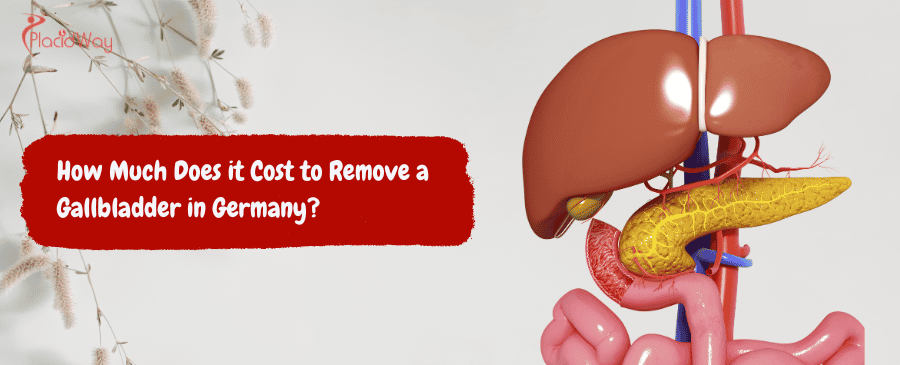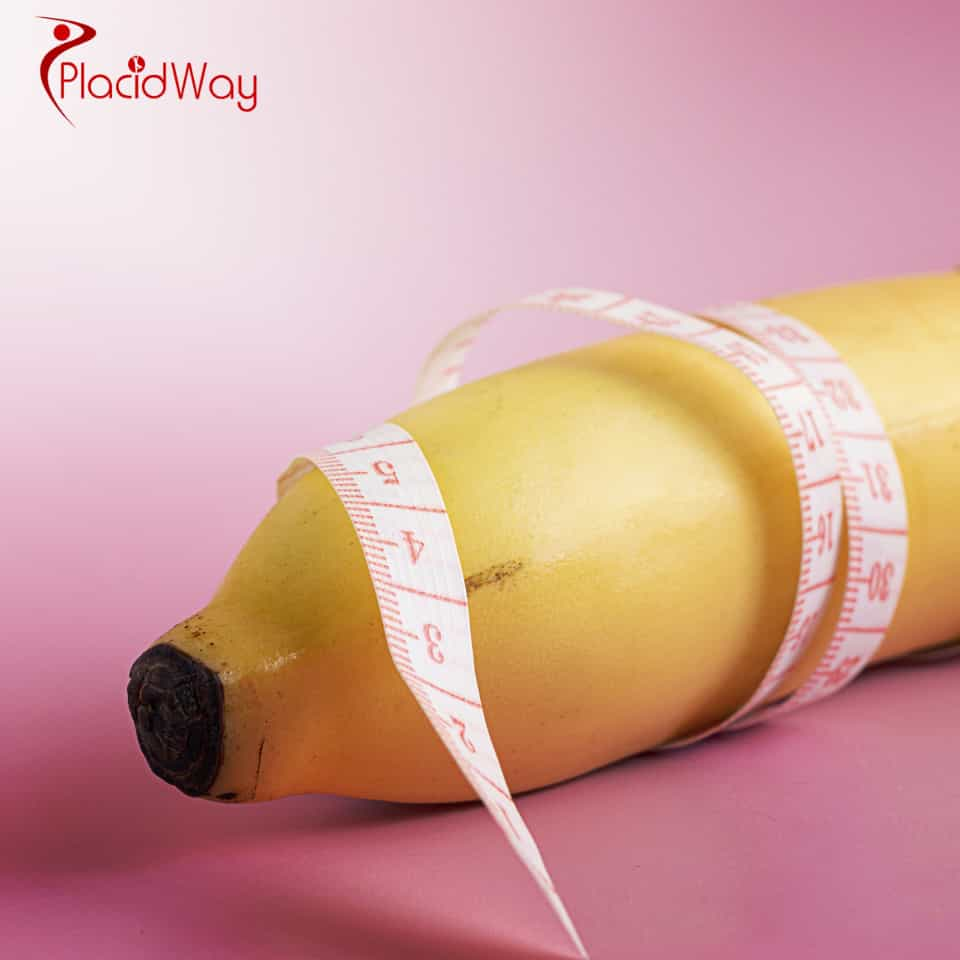Affordable Gallbladder Removal: Costs in Germany Explained

Having to undergo surgery can be a daunting prospect, especially when it's in a foreign country. If you're considering a gallbladder removal in Germany, you're likely wondering about the costs involved. Germany is renowned for its high-quality healthcare system, advanced medical technology, and highly skilled surgeons, making it a popular destination for medical tourism. This blog post aims to shed light on the expenses associated with gallbladder removal surgery, also known as a cholecystectomy, in Germany. We'll cover everything from average prices for both laparoscopic and open procedures to the various factors that can influence the final bill. Our goal is to provide you with clear, concise answers to all your important questions, helping you make informed decisions about your healthcare journey.
How much does it cost to remove a gallbladder in Germany?
The price for a gallbladder removal in Germany can vary significantly based on several factors, but for a laparoscopic cholecystectomy, which is the most common method, you can expect to pay anywhere from €5,000 to €9,000. More complex cases, or those requiring an open cholecystectomy, can see costs rise towards the higher end of the spectrum, sometimes reaching up to €15,000 or more.
These figures generally include the surgeon's fee, anesthesia, hospital stay, and basic post-operative care. However, it's crucial to get a detailed breakdown from the clinic or hospital you choose, as some packages might include additional services like pre-operative diagnostic tests or extended rehabilitation.
What is the average cost of laparoscopic cholecystectomy in Germany?
Laparoscopic cholecystectomy is the preferred method for gallbladder removal due to its minimally invasive nature, leading to faster recovery times and less scarring. In Germany, the average cost for this procedure reflects the high standard of medical care and advanced equipment used. This price usually covers:
- Surgeon's fees
- Anesthesia costs
- Operating room charges
- Hospital stay (typically 1-3 days for laparoscopic procedures)
- Basic post-operative follow-up
While this is an average, some clinics in major cities or highly specialized hospitals might have slightly higher rates, while others in less urban areas could offer more competitive pricing. It's always recommended to obtain a personalized quote.
How does an open cholecystectomy compare in cost to a laparoscopic one in Germany?
While laparoscopic cholecystectomy is the gold standard, an open cholecystectomy might be necessary in cases of severe inflammation, extensive scarring, or anatomical complexities. This traditional surgical method involves a larger incision, leading to a longer recovery period and hospital stay. Consequently, the costs are higher because of:
- Extended use of operating room facilities
- More complex anesthesia requirements
- Longer hospital stay (often 3-7 days or more)
- Potentially more extensive post-operative monitoring and pain management
- Increased need for rehabilitation or nursing care
Patients are typically informed during their consultation if an open procedure is anticipated, or if there's a possibility of converting from laparoscopic to open during surgery. This allows for clear understanding of potential cost implications.
What factors influence the total cost of gallbladder removal in Germany?
Understanding these influencing factors can help you better estimate the overall expense:
- Hospital or Clinic Choice: Prestigious university hospitals or private clinics in major cities may have higher fees compared to smaller, regional hospitals. Their advanced technology and specialized staff often come with a premium.
- Surgeon's Expertise: Highly experienced surgeons with a strong reputation or specialized expertise in complex cases might charge higher fees.
- Type of Procedure: As discussed, laparoscopic is generally less expensive than open surgery due to quicker recovery and shorter hospital stays.
- Length of Hospital Stay: Any complications or a slower-than-expected recovery requiring a longer stay will significantly increase the total cost due to daily room charges, nursing care, and medication.
- Pre-operative Diagnostics: Costs for initial consultations, blood tests, ultrasounds, MRIs, or other imaging may or may not be included in a quoted package price. It's vital to clarify this.
- Post-operative Care and Medication: The cost of medications prescribed after discharge, follow-up appointments, or any necessary physical therapy can add to the total.
- Complications: While rare, unexpected complications during or after surgery can lead to additional procedures, extended hospital stays, and increased medical expenses.
- Insurance Coverage: For international patients, whether your travel insurance or a medical tourism insurance plan covers the procedure can drastically alter your out-of-pocket expenses.
Are pre-operative diagnostic tests included in the cost of gallbladder removal in Germany?
Diagnostic tests are a vital part of preparing for gallbladder removal surgery. These typically include:
- Blood tests: To check overall health, liver function, and clotting ability.
- Ultrasound: The primary imaging test to confirm gallstones or inflammation.
- MRI or CT scan: May be used for more detailed imaging if complications or other issues are suspected.
- ECG (electrocardiogram): To assess heart health before anesthesia.
- Consultation with the surgeon and anesthetist: To discuss the procedure and anesthesia plan.
Some medical tourism packages or comprehensive clinic quotes might bundle these diagnostic tests into the total price. However, it's very common for them to be charged separately, especially for the initial consultation and extensive imaging. Always ask for a detailed cost breakdown that explicitly states what is and isn't included regarding diagnostics.
What is the typical hospital stay duration and its impact on cost for gallbladder removal in Germany?
The length of your hospital stay is a direct contributor to the overall cost of gallbladder removal in Germany. German hospitals maintain high standards of care, and daily charges reflect this quality. Here's a breakdown:
Laparoscopic Cholecystectomy:
- Typical stay: 1-3 days. Many patients undergoing a straightforward laparoscopic procedure can be discharged within 24-48 hours.
- Cost impact: A shorter stay means fewer daily charges for accommodation, nursing, and basic medical supplies.
Open Cholecystectomy:
- Typical stay: 3-7 days or longer. The larger incision and more invasive nature of open surgery necessitate more time for initial recovery and monitoring for complications.
- Cost impact: A longer stay directly increases the total bill, as each additional day incurs significant hospital fees.
Factors like your overall health, age, presence of co-existing conditions, and any unforeseen complications can extend the hospital stay, thereby increasing the final cost.
Are there hidden costs associated with gallbladder removal in Germany?
To avoid surprises, it's crucial for international patients to get a comprehensive quote that details everything included. Here are some areas where "hidden" costs might arise:
- Unquoted Diagnostic Tests: As mentioned, sometimes initial quotes don't include all necessary pre-operative tests, or unexpected tests might be required based on initial findings.
- Complication Management: If a complication arises during or after surgery, requiring further medical intervention, prolonged ICU stay, or additional procedures, these costs will be extra.
- Medication After Discharge: The cost of prescription medications you'll need after leaving the hospital is usually not included in the surgical package.
- Follow-up Appointments: While immediate post-operative checks might be included, subsequent follow-up visits after you've returned home or if an issue arises later may not be.
- Translator Services: If you don't speak German, you might need a medical translator. While some clinics offer this, it could be an additional charge.
- Travel and Accommodation: Don't forget the costs of flights, accommodation for yourself and any accompanying family, and local transport.
- Medical Complications Insurance: Consider obtaining medical complications insurance for international travel, which can cover unforeseen expenses related to surgical complications.
Can I use my health insurance for gallbladder removal in Germany as an international patient?
For most international patients, standard domestic health insurance plans do not cover elective or planned medical procedures performed outside their home country. There are exceptions, such as:
- International Health Insurance: Some comprehensive international health insurance plans are designed for expatriates or frequent travelers and may cover planned treatments abroad.
- Travel Medical Insurance with Medical Tourism Rider: A few travel insurance policies offer add-ons or riders specifically for medical tourism, covering scheduled procedures and potential complications.
- European Health Insurance Card (EHIC): For EU citizens, the EHIC covers medically necessary treatment during a temporary stay in Germany, but it usually doesn't cover planned surgery unless pre-authorized under specific circumstances.
It is absolutely critical to contact your insurance provider well in advance and understand the specifics of your policy regarding international medical treatment. Always get written confirmation of coverage to avoid unexpected financial burdens.
What is the recovery period like after gallbladder removal in Germany and its related costs?
Understanding the recovery period helps you plan your stay and budget for post-operative expenses:
Laparoscopic Cholecystectomy Recovery:
- Immediate: Patients usually feel some discomfort at the incision sites and shoulder pain from gas used during surgery. Most are discharged within 1-3 days.
- Short-term (1-2 weeks): Patients can typically return to light activities and work after a week. Strenuous exercise is usually avoided for 2-4 weeks.
- Full recovery: Most patients feel fully recovered within a few weeks to a couple of months.
Open Cholecystectomy Recovery:
- Immediate: More significant pain and longer hospital stay (3-7 days or more).
- Short-term (4-6 weeks): Activity restrictions are more stringent, and returning to work or normal activities takes longer.
- Full recovery: Can take several months, with lingering discomfort or sensitivity around the larger incision.
Related Costs:
- Medications: Pain relievers, antibiotics, and other prescriptions post-discharge.
- Follow-up Appointments: If you remain in Germany, these might be included or charged separately. If you return home, you'll need to factor in local medical visits.
- Rehabilitation/Physical Therapy: Generally not needed for laparoscopic cholecystectomy, but might be advised for some open surgery cases to aid mobility and strength.
- Accommodation: You'll need to budget for accommodation in Germany during your initial recovery period before flying home.
Why is Germany a popular destination for gallbladder removal surgery?
Germany has established itself as a leading country for medical tourism, and gallbladder removal is one of the many procedures that draw international patients. Here's why:
- High Quality of Care: German hospitals adhere to strict quality and safety standards, often surpassing those in other countries. Many clinics are internationally accredited (e.g., JCI, KTQ).
- Experienced Surgeons: German surgeons are highly trained, many with extensive experience in performing a high volume of cholecystectomies, particularly laparoscopic procedures.
- Advanced Technology: Clinics are equipped with state-of-the-art medical technology, including advanced laparoscopic instruments and imaging systems, which contribute to successful outcomes and faster recoveries.
- Efficiency and Organization: The German healthcare system is known for its efficiency, precise scheduling, and organized patient pathways, minimizing waiting times.
- Competitive Pricing: While not the cheapest option globally, Germany offers a balance of exceptional quality and competitive pricing, especially when compared to countries like the USA, making it an attractive option for those seeking high standards without the highest price tag.
- Multilingual Staff: Many hospitals catering to international patients have staff who speak English and other languages, facilitating communication and easing the patient experience.
How do I find a reputable clinic for gallbladder removal in Germany?
Finding the right clinic is essential for a successful gallbladder removal experience. Here's how to approach it:
- Research Accreditations: Look for hospitals with international certifications like the Joint Commission International (JCI) or German national accreditations like KTQ. These signify adherence to rigorous quality and safety standards.
- Specialized Departments: Opt for hospitals with strong Gastroenterology and General Surgery departments. These departments often have surgeons highly experienced in cholecystectomy.
- Surgeon's Credentials: Inquire about the surgeon's experience, qualifications, and the number of gallbladder removal procedures they perform annually. Membership in professional societies like the German Society for General and Visceral Surgery (DGAV) is a good sign.
- Patient Reviews and Testimonials: Check online reviews, forums, and testimonials from previous international patients. Websites specializing in medical tourism often provide verified patient feedback.
- Medical Tourism Facilitators: Companies like PlacidWay specialize in connecting patients with reputable clinics abroad. They can help with clinic selection, obtaining quotes, travel arrangements, and language support.
- Direct Contact and Consultation: Once you've shortlisted clinics, contact them directly. Ask for detailed quotes, information about their surgeons, and a virtual consultation if possible. Pay attention to their responsiveness and clarity.
What should I consider when budgeting for my gallbladder removal trip to Germany?
A comprehensive budget ensures a smooth and stress-free medical journey. Beyond the direct medical costs, factor in these elements:
Medical-Related Costs:
- Surgical Package: Ensure you know what's included (surgeon's fee, anesthesia, OR, basic hospital stay).
- Diagnostic Tests: Confirm if these are part of the package or separate.
- Medications: Both in-hospital and post-discharge prescriptions.
- Extended Hospital Stay: Budget for extra days in case of complications or slower recovery.
- Follow-up Appointments: Costs for any necessary post-operative check-ups in Germany.
- Medical Translator: If needed, factor in their fees.
Travel and Living Costs:
- Flights: Round-trip airfare for yourself and any travel companions.
- Accommodation: Hotel or apartment rental for your recovery period, outside the hospital. Consider proximity to the hospital.
- Local Transportation: Taxis, public transport, or car rental to and from the hospital, airport, and around the city.
- Meals: Daily food expenses for yourself and companions.
- Travel Insurance: Especially medical travel insurance that covers planned procedures and complications.
- Contingency Fund: Always have extra funds (10-20% of your total budget) for unforeseen circumstances, such as extended stays or unexpected medical needs.
Is financing available for gallbladder removal in Germany for international patients?
Most German hospitals and clinics require international patients to pay for services upfront or at the time of discharge. They generally do not offer direct financing plans for international patients. However, alternative financing options might be available:
- Medical Tourism Facilitators: Some agencies that arrange medical travel may have partnerships with financing companies that offer loans specifically for medical procedures abroad.
- Personal Loans: Patients can explore obtaining a personal loan from a bank or credit union in their home country to cover the costs.
- Payment Plans through Clinics (Rare): In very specific cases, and often for higher-cost, multi-stage treatments, some clinics might be open to a structured payment plan, but this is highly individual and needs to be negotiated directly.
- Credit Cards: Using credit cards for payment is always an option, though be mindful of interest rates and foreign transaction fees.
It's best to have your funding secured before traveling to Germany for your gallbladder removal surgery to avoid any financial stress during your medical journey.
What are the alternatives to surgical gallbladder removal, and are they offered in Germany?
While surgical gallbladder removal (cholecystectomy) remains the most definitive and common treatment for symptomatic gallstones and gallbladder inflammation, some non-surgical alternatives exist:
- Oral Dissolution Therapy: Medications containing bile acids (e.g., ursodeoxycholic acid) can dissolve cholesterol gallstones over a period of months or even years. This method is only effective for small, non-calcified gallstones and has a high recurrence rate once medication is stopped. Germany, with its advanced pharmaceutical sector, offers these medications.
- Lithotripsy (Shock Wave Therapy): Similar to kidney stone treatment, this procedure uses shock waves to break up gallstones. It's usually reserved for single, small, non-calcified gallstones and is not as widely practiced for gallstones as it is for kidney stones. Some specialized centers in Germany may offer this.
- Dietary Modifications: For mild symptoms, managing diet (e.g., low-fat diet) can help reduce the frequency and severity of gallbladder attacks, but it does not remove the stones or treat the underlying issue.
These alternatives are generally less effective and have higher recurrence rates compared to surgical removal, especially for patients with frequent or severe symptoms, large stones, or inflammation (cholecystitis). Surgeons in Germany will evaluate your specific condition and recommend the most appropriate course of action, which, in most symptomatic cases, is cholecystectomy.
Does Germany's public healthcare system cover gallbladder removal for non-residents?
The German public healthcare system (Gesetzliche Krankenversicherung - GKV) is a robust social security system designed for its residents and certain visitors under specific agreements. For non-residents, particularly those traveling specifically for an elective medical procedure like gallbladder removal, the public system typically does not provide coverage. You would generally be treated as a private patient.
- Emergency vs. Elective: In a medical emergency, you would receive necessary treatment, but you would be billed for it. Elective surgeries, like planned cholecystectomy, are not covered for non-residents.
- EHIC for EU Citizens: Citizens from EU/EEA countries and Switzerland can use their European Health Insurance Card (EHIC) for medically necessary treatment in Germany. However, this primarily covers unforeseen medical needs, not pre-planned surgeries unless explicitly authorized by their home country's health insurance provider beforehand under specific directives.
Therefore, if you are planning to travel to Germany for gallbladder removal, you should prepare to cover the costs yourself, either directly or through private international medical insurance. Clinics usually provide transparent pricing for private patients.
What are the post-operative dietary recommendations after gallbladder removal in Germany?
Dietary adjustments are a key part of recovery after gallbladder removal, as the body needs time to adapt to the absence of the gallbladder, which stores and concentrates bile. Here are common recommendations from German medical professionals:
- Start Slow: Begin with small, bland, low-fat meals and gradually introduce other foods as tolerated.
- Low-Fat Diet: For the first few weeks or months, it's generally recommended to consume a low-fat diet. This helps prevent diarrhea, bloating, and abdominal pain, as bile now flows directly from the liver into the small intestine, and a large influx of fat can overwhelm the system.
- Avoid Trigger Foods: Initially, avoid high-fat foods (fried foods, fatty meats, rich desserts), very spicy foods, and sometimes even high-fiber foods (like raw vegetables and legumes) until your digestive system adjusts.
- Small, Frequent Meals: Eating smaller meals more often can be easier on the digestive system than three large meals.
- Stay Hydrated: Drink plenty of water.
- Listen to Your Body: Pay attention to how different foods affect you and adjust your diet accordingly. What works for one person may not work for another.
Your surgeon or a nutritionist at the German clinic will provide specific dietary guidelines tailored to your recovery needs before you are discharged.
Are there any language barriers for international patients undergoing gallbladder removal in Germany?
For international patients seeking gallbladder removal in Germany, language can be a concern. However, Germany's medical tourism sector is well-prepared to accommodate non-German speakers:
- English-Speaking Medical Professionals: In major cities and hospitals with international departments, many doctors, surgeons, and nurses are proficient in English, given that medical education often includes English-language texts and research.
- International Patient Departments: Many large hospitals have dedicated international patient offices with multilingual staff who assist with appointments, admissions, and communication.
- Professional Translators: If comprehensive translation is needed for complex discussions or if staff proficiency isn't sufficient, professional medical translators are available. This service might be provided by the clinic or can be arranged independently, potentially incurring an extra charge.
- Documentation: While some basic patient information might be available in English, primary medical records and discharge instructions will often be in German. Ensure you have a plan for translating these if necessary.
It's always advisable to confirm the language support offered by your chosen clinic during your initial inquiries to ensure clear communication throughout your gallbladder removal journey.
How long should I plan to stay in Germany for gallbladder removal surgery?
Planning your total stay in Germany for gallbladder removal involves more than just the time spent in the hospital. Here’s a general timeline:
- Pre-operative Phase (1-2 days): This includes your arrival, initial consultations with the surgeon and anesthetist, and necessary diagnostic tests (if not done in advance).
- Hospital Stay (1-3 days for laparoscopic, 3-7+ days for open): This is the direct surgical period and immediate post-operative recovery.
- Initial Post-operative Recovery (2-4 days post-discharge): Even after leaving the hospital, it’s advisable to stay in Germany for a few days to ensure stable recovery before flying. This allows for any immediate follow-up checks and ensures you're comfortable enough for travel.
Therefore, for a straightforward laparoscopic cholecystectomy, a total of 5-7 days in Germany is a reasonable estimate. If an open cholecystectomy is performed or if complications arise, your stay could extend to 10-14 days or even longer. Always consult with your surgeon regarding the recommended length of stay based on your individual case.
What are the success rates for gallbladder removal in Germany?
Germany's reputation for high-quality healthcare extends to the success rates of surgical procedures like gallbladder removal. The success rate for resolving the symptoms related to gallstones and cholecystitis after a cholecystectomy is very high. Here's what contributes to this:
- Expert Surgeons: German surgeons are highly trained and perform a significant volume of these procedures, contributing to their expertise.
- Advanced Techniques: The widespread use of laparoscopic techniques minimizes invasiveness, reduces recovery time, and lowers the risk of complications compared to traditional open surgery.
- Stringent Quality Control: German hospitals adhere to strict national and international quality guidelines, ensuring patient safety and optimal outcomes.
- Comprehensive Pre-operative Assessment: Thorough diagnostic evaluations help identify potential risks and allow for tailored surgical planning, further contributing to success.
- Low Complication Rates: While any surgery carries risks, the complication rate for gallbladder removal in Germany is generally very low, especially for uncomplicated cases.
Patients can typically expect excellent outcomes, with significant relief from symptoms and a quick return to normal activities, particularly after a laparoscopic procedure.
Can I travel immediately after gallbladder removal in Germany?
While laparoscopic gallbladder removal offers a quicker recovery than open surgery, immediate travel, especially by air, is generally not advised. Here's why:
- Post-Anesthesia Effects: It takes time for the effects of general anesthesia to fully wear off, and you may experience drowsiness, nausea, or disorientation.
- Pain Management: You'll need time to manage post-operative pain and ensure it's controlled before undertaking a journey.
- Risk of Complications: Although rare, immediate post-operative complications like bleeding or infection could arise, and it's safer to be near medical facilities for the first few days.
- Gas Bloating (Laparoscopic): The gas used during laparoscopic surgery can cause discomfort and bloating, which can be exacerbated by changes in cabin pressure during air travel.
- Physical Discomfort: Sitting for long periods during a flight or car journey can be uncomfortable with fresh incisions.
Your surgeon in Germany will advise you on the safest time to travel based on your individual recovery progress. Generally, a minimum of 5-7 days in Germany, including hospital stay and initial recovery outside, is recommended before considering air travel.
Are medical tourism agencies helpful for planning gallbladder removal in Germany?
Navigating the process of international medical treatment can be complex, and this is where medical tourism agencies prove invaluable. For gallbladder removal in Germany, a reputable agency can:
- Provide Clinic Options: Offer a curated list of top-rated hospitals and clinics specializing in cholecystectomy in Germany, saving you research time.
- Obtain Transparent Quotes: Help you get detailed, all-inclusive price estimates from various clinics, reducing the risk of hidden costs.
- Coordinate Appointments: Schedule consultations, pre-operative tests, surgery, and follow-up appointments.
- Facilitate Communication: Act as a liaison between you and the medical staff, often providing translation services.
- Assist with Travel Logistics: Help arrange flights, airport transfers, and suitable accommodation for your stay and recovery.
- Offer Support: Provide guidance and support throughout your medical journey, from initial inquiry to post-operative care.
By using an agency like PlacidWay, you can streamline the process, ensure you're choosing a reputable provider, and focus on your health and recovery while leaving the logistical complexities to experienced professionals.
If you are considering gallbladder removal or any other medical procedure abroad, exploring options through a trusted medical tourism platform like PlacidWay can provide comprehensive support and access to world-class healthcare solutions.


.png)




.png)

.png)






Share this listing